Massacres terroristes : genèse et horizon probable
D'emblée, ces évidences : la génération spontanée n'existe pas. Ni en criminologie, ni en en biologie. De ce fait, les Kouachi, Coulibaly & co ne tombent pas du ciel et forcément, les tragédies type Charlie hebdo et Hyper-casher ont une genèse. Et faute de remonter aux origines, aux racines d'un événement tragique, un risque majeur existe qu'il réitère, puisqu'incompris.
L'autopsie de cette tragédie est d'autant plus cruciale qu'une opportune et émotive "unité nationale" fait qu'il n'y aura pas de commission d'enquête parlementaire sur le sujet précis des attaques du début janvier 2015, ayant pourtant coûté la vie à 17 personnes.
Cette autopsie, c'est donc un criminologue qui l'entreprend - à juste titre car, on le verra, l'enchainement qui débute en 2012 à Toulouse et Montauban avec Mohamed Merah, et s'achève (pour l'instant) dans la région parisienne avec les Kouachi et Coulibaly, est clairement criminel.
Car voici la commune caractéristique de Merah, Nemmouche, du"Bilal" de Joué-les-Tours, des Kouachi et de Coulibaly, plus essentielle encore que leur dérive salafiste-terroriste : tous sont des bandits endurcis. Non de "petits délinquants" comme le dit gentiment la presse, mais des criminels au sens judiciaire (malfaiteurs dont les infractions relèvent de la Cour d'assises) et d'abord l'initial et prototype des autres, Mohamed Merah, braqueur en série, 18 condamnations au casier judiciaire à sa mort. Idem pour Coulibaly au "lourd passé de braqueur", dit Libération. Les autres ne valent pas mieux.
Or au delà même du profil des terroristes, ces tragédies n'adviennent pas par hasard. Il y a toujours un climat, une ambiance. Dans la France de 2015, ce climat est celui d'une dégradation de la sécurité publique. Aujourd'hui, les criminels et parmi eux, les bombes humaines ré-islamisées à la Kouachi-Coulibaly n'ont plus peur de la police - bien moins encore, de la justice. Ils se sentent à l'aise pour agir. Ils flairent l'enivrant fumet de l'impunité.
Commençons donc par regarder la France criminelle d'aujourd'hui, d'où proviennent tous les vrais terroristes ayant vraiment tué de 2012 à 2015.
• Dans la France de 2015, les armes de guerre abondent
Un exemple, parmi d'autres. Fin 2014 à Créteil, un automobiliste échappe à un contrôle routier, blessant au passage deux policiers avec son véhicule. Au logis de ce petit dealer local, on trouve un pistolet-mitrailleur Uzi, deux pistolets automatiques 9mm, un Colt 357 magnum et des munitions en abondance. On comprend avec quelle aisance les gangsters-jihadis Kouachi-Coulibaly vont acquérir de mortelles armes de guerre auprès du premier "collègue" venu.
• "Vivre ensemble", mais criminalité étrangère
Nous abreuvant du "vivre ensemble", l'effusion médiatique élude - et ceci est un élément objectif de l'autopsie en cours - que tous les vrais terroristes ayant vraiment tué de 2012 à 2015, sont indéniablement issus de l'immigration, et que, de 2008 à 2013 :
- 33% d'étrangers en plus, ont été mis en cause pour toutes les infractions non routières commises sur la sol français,
- + 60% pour les atteintes aux biens (vols, etc.), par des étrangers, sur les mêmes années.
Si bien entendu, on ajoutait à ces données les citoyens français récemment issus de l'immigration, la proportion des infractions commises en France par des étrangers d'origine, licites ou clandestins, serait écrasante, pour la criminalité "des rues", agressions, vols à main armée, cambriolages, vols divers, etc.
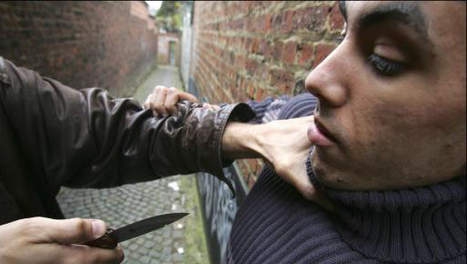
• Une criminalité "stable" ? C'est faux
Le ministère de l'Intérieur et les médias et agences proches disent que la "délinquance" est stable en France. Or c'est faux. La France des cités hors-contrôle et quartiers dangereux est bien plutôt prise dans une spirale criminelle - et là se trouvent le terreau et les repaires du jihadisme à la Merah & co. C'est dans ces "ghettos" qu'ils s'enhardissent et pas en Syrie ; là qu'ils s'aguerrissent et non en Irak ; là qu'ils se procurent des armes de guerre et non au Yémen.
Ainsi, quelle est la réalité criminelle de cette France dangereuse ?
Dès 2011, Stéphane Gatignon, maire Europe-Ecologie Les Verts de Sevran (93), décrivait (Le Monde 12/04/2011), des "affrontements violents entre bandes criminelles rivales... Nous vivons dans un état d'exception avec des bandes qui se tirent dessus pour le marché de la drogue". C'est dans de telles zones de guerre banlieusardes que les Merah & co apprennent à tirer et à cibler la police ; qu'ils acquièrent, pour de futurs attentats, le "calme des vieilles troupes".
Dans cette France dangereuse (en "zone police", urbanisée), les séquestrations criminelles - accompagnées, de tortures, sévices et autres "actes de barbarie" - ont bondi de 33% en 2014. Or accomplir et gérer un enlèvement est une opération complexe, organisée. C'est déjà du proto-terrorisme - voir Ilan Halimi et la récente affaire de Créteil où une famille était attaquée à domicile car "Les Juifs, ça met pas l'argent à la banque".
Dans cette France dangereuse, s'agissant des faits de violence "la barre du demi-million de faits par an est franchie en mai 2014" (+ de 500 000 cas connus). Les "règlements de comptes entre malfaiteurs" bondissant, eux, de + 20% de juin 2013 à mai 2014. Pire encore (8e enquête de victimation de l'ONDRP, décembre 2014) les vols avec violence visant les femmes (arrachages de sacs, agression aux distributeurs de billets, vols de portables...) explosent de + 28%.
Dans cette France dangereuse, les professionnels sont toujours plus victimes de sévices et d'agressions (dernières données disponibles, fin 2013) :
Médecins : + 15 %
Policiers : + 5,6 %
Gendarmes : + 17 %
Pompiers en exercice : + 27 %
Douaniers : + 55 %
Pour les agents de transports (conducteurs de bus, etc.), on atteint "un record en 2013".
Souvent, les urgentistes visitant de nuit les cités hors-contrôle sont roués de coups et dépouillés. En décembre 2014 dans le Val de Marne, un médecin "venu secourir une vieille dame", subit sa 4e agression en deux ans.
Comment les Kouachi-Coulibaly & co financent-ils leurs voyages, leur terrorisme? De discrets donateurs de la péninsule arabe les inondent-ils de pétrodollars ? Non : leur argent provient de cambriolages et de braquages. Qu'en est-il aujourd'hui de ces deux types d'infractions ?
En juin 2014, la Fédération française des sociétés d'assurances signale une "explosion du nombre des cambriolages depuis 2008" : + 50 % ! Indéniable, leur analyse repose sur 38 millions de contrats Multi Risque Habitation.
Autre type d'agression permettant d'aguerrir de jeunes malfaiteurs : les vols à la portière, sorte de micro-opération commando. Dans la seule Seine Saint-Denis, on en recense "un millier, entre le 1e janvier et le 20 décembre 2014".
Le pire maintenant : les "Vols à main armée", familièrement dits "braquages", car au delà du crime même, ils constituent de longue date, de l'Italie des Brigades rouges à l'Ulster de l'Ira en passant par l'ETA basque, l'entraînement-roi des commandos terroristes en formation. Double bénéfice ! Car en prime, ça permet de financer la cause.
Bien entendu, il s'agit de "braquages de proximité", sans grands risques, plutôt que d'attaquer des banques, chambres fortes, etc. Tous les tueurs de 2012 à 2015, Merah, Nemmouche, "Bilal", les Kouachi, Coulibaly sont passés par cette cruciale case "braquage". Sans l'expérience alors acquise, leur passage à l'acte terroriste devenait problématique - voire impossible.
Qu'en est-il de ces braquages de proximité dans la France d'aujourd'hui ? Le ministère de l'Intérieur dit qu'ils baissent - une affirmation ni sérieuse, ni crédible. Les outils scientifiques offerts par la criminologie permettent à l'auteur d'affirmer qu'au contraire, ces braquages sont plus nombreux, plus violents et touchent des cibles plus diverses que par le passé.
Ajoutons que le braquage est indéniable, car forcément repéré de divers côtés : police ou gendarmerie locales, mairies, médias locaux, assurances, syndicats professionnels ou de salariés, etc. Donc, en matière de vols à mains armées, pas de "chiffre noir" (différence entre l'infraction vécue et l'infraction connue).
Qu'en est-il donc de ces authentiques "centres d'apprentissages" pour bandits et terroristes ?
Prenons d'abord les médias tu terrain. Les lire systématiquement (ce que nous faisons) révèle que les braquages persistent sur des cibles "classiques" : stations-services, pharmacies, supérettes et commerces (boulangeries, jouets, articles de sport...), bar-tabacs, restauration rapide, etc. Chacune de ces attaques rapporte quelques centaines d'euros, guère plus. En outre, toujours plus de camions sont braqués (fret, cigarettes, colis, cosmétiques, informatique, etc.).
Or désormais, de nouvelles cibles sont touchées : rien qu'en novembre et décembre 2014, des braquages ont visé (un ou plusieurs) : poissonnerie, salon de coiffure, grossiste en volailles, caserne de pompiers (!), mercerie, camion à pizza, jardinerie, caviste, cinéma, centre de thalassothérapie et le plus beau... Le Tribunal de Grande Instance de Nancy !! - au passage, une preuve flagrante du respect qu'inspire aux racailles la justice façon Taubira.
Et les professionnels ? Que constatent les magistrats, policiers et gendarmes de terrain ? L'auteur en compte beaucoup dans ses anciens étudiants (trente ans entre l'Institut de criminologie et le département MCC...). Tous confirment ce qu'écrit l'un d'eux, début 2015 : "Les braquages de proximité se multiplient au préjudice des supérettes, bureaux de poste, pharmacies et autres boulangeries, c'est incontestable. Dans mon ressort, pas une semaine sans un ou plusieurs faits de ce type".
Deux points importants maintenant : toujours plus, ces braquages de proximité sont violents et toujours plus, ils adviennent en série, voire par rafales.
• Les braquages violents
Là aussi, les témoignages abondent. Les recueillir demande juste de savoir lire. Novembre et décembre 2014, toujours : "Uckange, braquage d'une rare violence... Commerçants "braqués à domicile et violemment frappés"... A Margnac-sur-Touvre "Le braqueur frappe le vendeuse à coups de pieds et de poing"... A Issy-les-Moulineaux, un distributeur de billets attaqué à l'explosif "A 8h30 du matin, quand la fréquentation des lieux est intense"... Les bandits "ont lancé le véhicule en feu sur l'atelier"... Lyon "Braquage à la kalachnikov dans une rue pleine de monde"... Metz "Commerçant blessé par balles lors d'un braquage"... A Courcelles-les-Lens "la caissière est gravement blessées par balles". Ainsi de suite, parmi cent cas traumatisants. A l'œuvre bien sûr, des voyous - demain, des émules de Kouachi-Coulibaly ?
• Les braquages en série
L'énumération est incessante : Lyon "Le supermarché Aldi est braqué une nouvelle fois (la 4e depuis 2012)... "Les vols à main armée se multiplient en Seine-Maritime"... Val-de-Marne "Une soirée, trois braquages"... Angers "La série des braquages de boulangerie continue"... Fouquière-les-Lens "Enième braquage chez Aldi (un autre)... Toulouse "Cinq vols à main armée en cinq jours"... Le responsable sécurité des Carrefour de Nantes et sa région "Le nombre de VMA constatés dans nos magasins a doublé sur l'an dernier"... Presqu'île de Guérande "La vague de braquages ne faiblit pas"... Marseille "trois braquages en une nuit"... Second braquage récent à la Poste de Compiègne, dans une boulangerie et un tabac de Torcy. Nantes-Rézé "Tous les débits de tabac y ont eu droit"... Antibes-Vallauris "Braquages en série"... Saint Nazaire "Rythme inquiétant... Le 14e braquage depuis le début de l'année"... Essonne "deux commerces braqués coup sur coup"... Ainsi de suite, par dizaines de cas, chaque semaine.
• Des braqueurs toujours plus jeunes
"Essonne, RER D "six ados de quinze ans interpellés pour un vol violent"... Région toulousaine "trois ados braqueurs de 12, 15 et 16 ans". 12 ans, vous avez bien lu. Les chouchous Mme Taubira, "victimes de l'exclusion et du racisme" à ne surtout pas contrarier - dans les faits, de potentiels émules de Kouachi-Coulibaly après dérive dans l'islam fanatique.
D'où provient alors la baisse de 15% des braquages annoncée par l'Intérieur et ses séides ? De subtiles manipulations sur la qualification pénale des faits. Le journal local constate un braquage, car c'en est un, mais ensuite, le "vol avec arme" ou "vol en réunion" s'édulcore en "vol avec violence". Le crime devient un délit. Niveau justice, le braquage arrive au Parquet, selon sa "nature d'affaire" (NATAF). Mais au sortir du Parquet, "maquillage" aidant, la "nature d'infraction" (NATIF) gomme le braquage. A quel rythme ce bonneteau judiciaire opère-t-il ? Assez, en fin de compte, pour que baissent statistiquement des crimes qui en fait, augmentent.
• Quelles populations souffrent le plus de cette criminalité proto-terroriste ?
Cette criminalité ravage d'abord la France périphérique, les faubourgs, le domaine périurbain, les villes satellites des métropoles et les campagnes proches. Là, vit 60% de la population métropolitaine et 80% des catégories populaires : ouvriers, employés, petits paysans ou artisans, patrons de TPE.
Cette France-là souffre d'une triple insécurité :
- Physique (la criminalité),
- Économique (la crise),
- Culturelle (l'immigration).
Cette population là se sent reléguée et oubliée par les bourgeois officiels - seule face aux prédateurs aujourd'hui et peut-être, face aux terroristes, demain.
Cette population sait ce qu'elle vit et voit ce qu'elle voit. Les contes de fée sur le "vivre ensemble", les "maquillages" sur la sécurité, soulagent sans doute aujourd'hui les gouvernants - mais à terme, tout cela est ravageur. Car la réalité existe. Notamment, la réalité criminelle. Or comme le dit si bien le philosophe Clément Rosset, cette dernière "est insupportable, mais irrémédiable".
Dans la population périurbaine, enfle donc chaque jour le sentiment - toujours explosif en France - d'un énorme et croissant déni de justice. Sentiment qui, dans les siècles écoulés, a provoqué jusqu'à des révolutions.
Il y a certes le double drame de Charlie-Hebdo et de l'Hyper-Casher. Mais en dessous et en profondeur, grandit le trouble à propos de "gangsterroristes" à la Merah qu'à cinq reprises déjà, le Renseignement intérieur n'a su ni cibler, ni neutraliser à temps. Cette inquiétude, les actuels gouvernants feraient bien de la prendre sérieusement en compte, au lieu d'uniquement gérer l'effusion et le théâtre politicien.
Xavier Raufer (Nouvel Économiste, 26 janvier 2015)
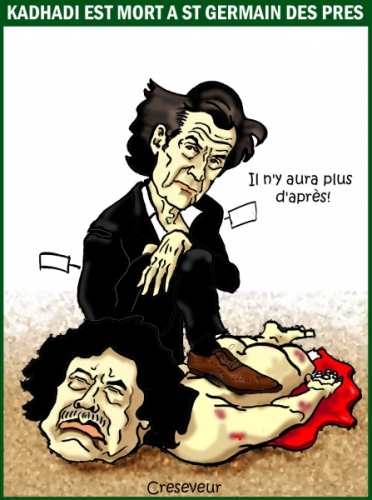 Lévy’s “fair wind of democracy” has a funny way of blowing. It blew down the US ambassador in Benghazi. It blew the country’s infrastructure to the stone age. It blew the economy to the prehistoric age. It blew in al-Qaeda and ISIS. And, yesterday, it blew off the heads of 21 Egyptian Christians.
Lévy’s “fair wind of democracy” has a funny way of blowing. It blew down the US ambassador in Benghazi. It blew the country’s infrastructure to the stone age. It blew the economy to the prehistoric age. It blew in al-Qaeda and ISIS. And, yesterday, it blew off the heads of 21 Egyptian Christians.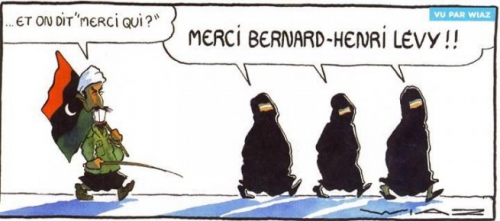



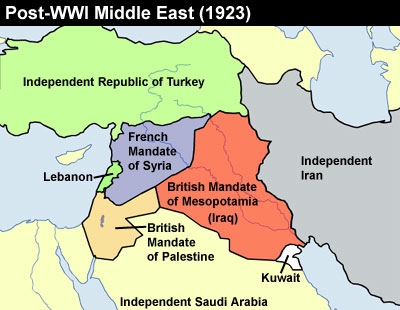 Che cosa sta succedendo in Siria e in Iraq? Semplice: sta succedendo che uno dei principali alleati degli Stati Uniti nella regione – l’Emirato del Qatar – stia finanziando ed armando un esercito di terroristi che vuole cancellare Iraq, Siria, Libano e Giordania, ed al loro posto creare un impero clericale – il Califfato – ispirato ad una interpretazione fondamentalista dell’Islamismo nella sua versione sunnita.
Che cosa sta succedendo in Siria e in Iraq? Semplice: sta succedendo che uno dei principali alleati degli Stati Uniti nella regione – l’Emirato del Qatar – stia finanziando ed armando un esercito di terroristi che vuole cancellare Iraq, Siria, Libano e Giordania, ed al loro posto creare un impero clericale – il Califfato – ispirato ad una interpretazione fondamentalista dell’Islamismo nella sua versione sunnita.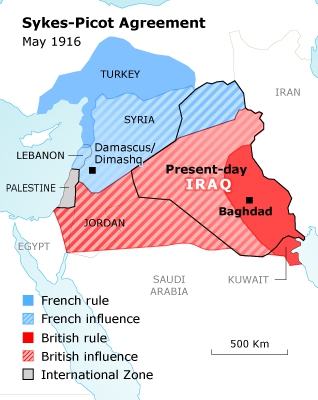
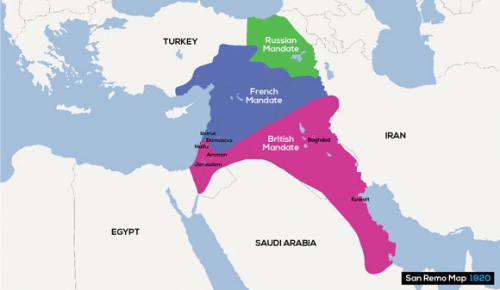
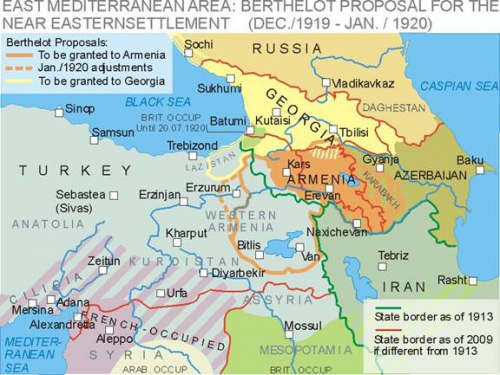

 del.icio.us
del.icio.us
 Digg
Digg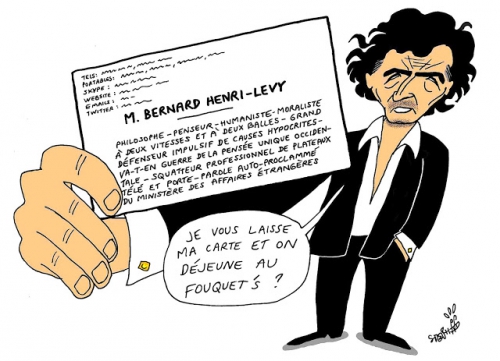
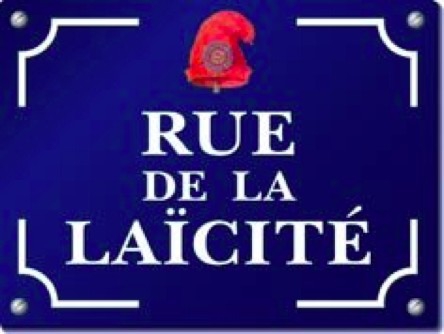
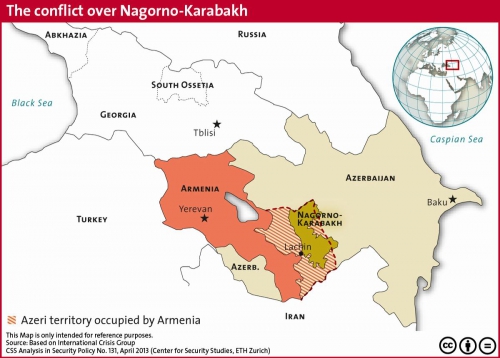

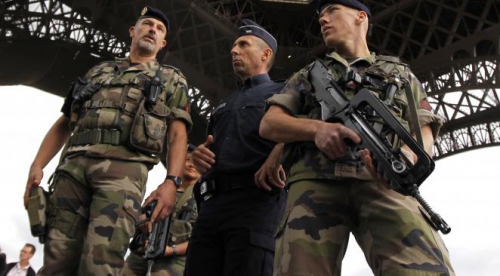

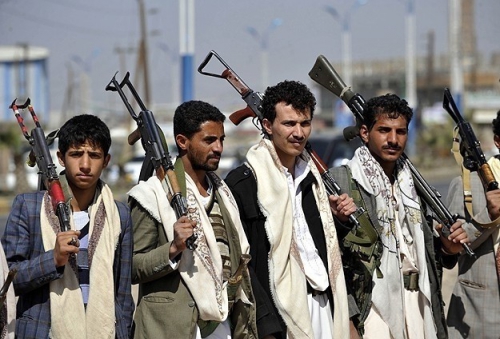
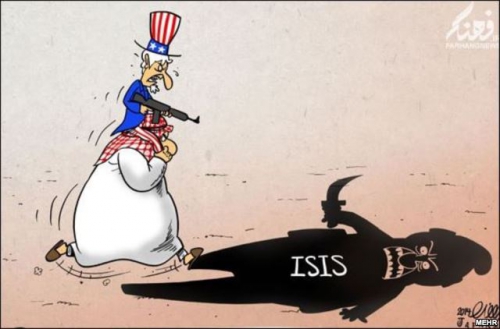
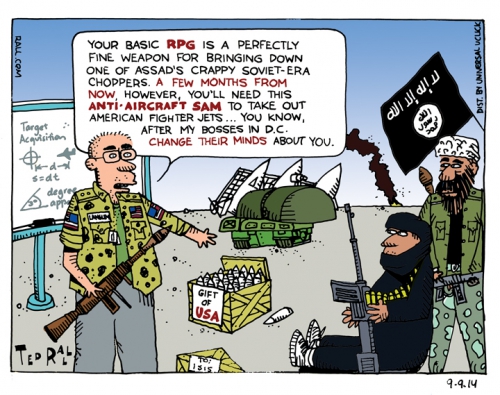
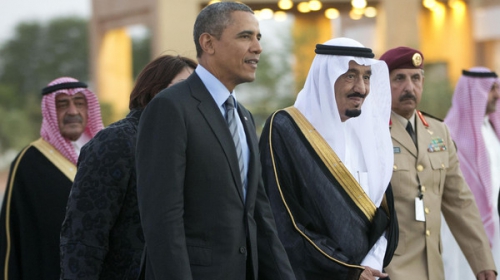
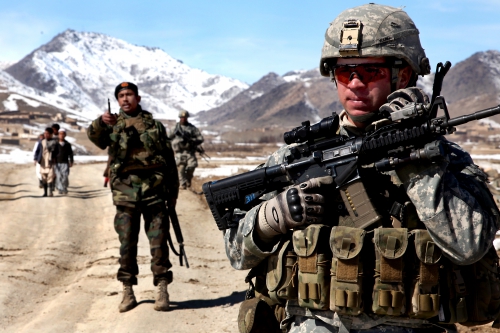
 The Great War of the American Empire encompasses several sub-wars, continual warfare, continual excuses for continual warfare, and continual military engagements that promise Americans more of the same indefinitely. There is a web site called
The Great War of the American Empire encompasses several sub-wars, continual warfare, continual excuses for continual warfare, and continual military engagements that promise Americans more of the same indefinitely. There is a web site called 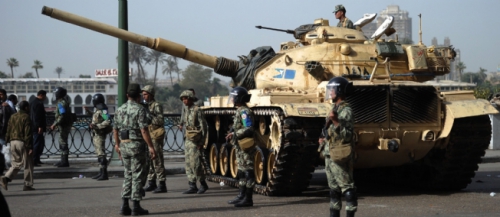
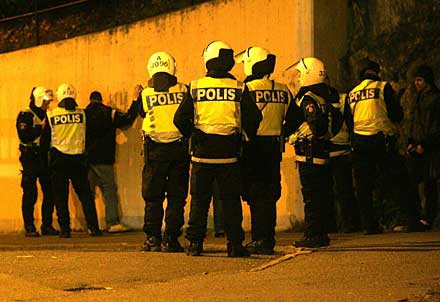
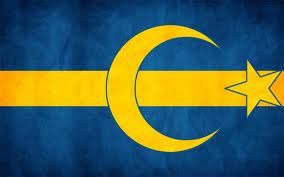 The challenges facing Sweden in integrating its large Muslim population are perhaps best illustrated in Malmö, Sweden’s third largest city, where 41 percent of the population have a foreign background (30 percent were born abroad and 11 percent are Swedish-born with foreign-born parents). [4] The city is marked by high levels of criminal and anti-Semitic violence, both of which often involve Muslims from the city’s low-income districts. In 2014, Malmö suffered 36 small-scale bombing, with targets including police stations, courts, a prosecutor’s office, a detention center and shops (10News.dk, December 28, 2014). Amid rising Muslim-Jewish tension in the city, Malmö police also recorded 60 hate crimes against Jews in 2012, up from an average of 22 in 2010 and 2011 (Jerusalem Post, August 1, 2013). Although most of these bombing incidents appear to be related to criminal and gang-related issues, rather than terrorism or ideologically-driven extremism, many also involved Muslim immigrants and therefore indicate the potential for Islamist extremists to access firearms and explosives.
The challenges facing Sweden in integrating its large Muslim population are perhaps best illustrated in Malmö, Sweden’s third largest city, where 41 percent of the population have a foreign background (30 percent were born abroad and 11 percent are Swedish-born with foreign-born parents). [4] The city is marked by high levels of criminal and anti-Semitic violence, both of which often involve Muslims from the city’s low-income districts. In 2014, Malmö suffered 36 small-scale bombing, with targets including police stations, courts, a prosecutor’s office, a detention center and shops (10News.dk, December 28, 2014). Amid rising Muslim-Jewish tension in the city, Malmö police also recorded 60 hate crimes against Jews in 2012, up from an average of 22 in 2010 and 2011 (Jerusalem Post, August 1, 2013). Although most of these bombing incidents appear to be related to criminal and gang-related issues, rather than terrorism or ideologically-driven extremism, many also involved Muslim immigrants and therefore indicate the potential for Islamist extremists to access firearms and explosives.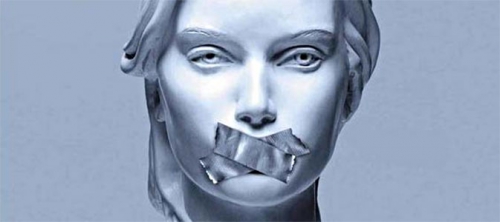
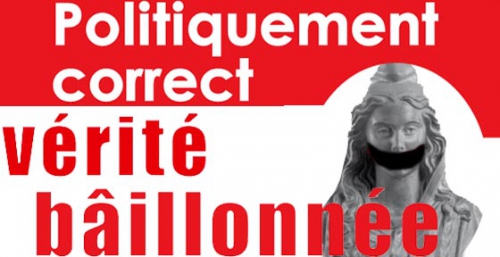
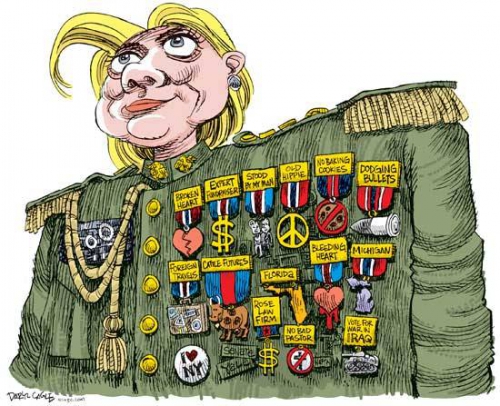
 Recall how Obama had declined up to the last minute to order Mubarak to step down, and how Vice President Joe Biden had pointedly declined to describe Mubarak as a dictator. Only when millions rallied against the regime did Obama shift gears, praise the youth of Egypt for their inspiring mass movement, and withdraw support for the dictatorship. After that Obama pontificated that Ali Saleh in Yemen (a key ally of the U.S. since 2001) had to step down in deference to protesters. Saleh complied, turning power to another U.S. lackey (who has since resigned). Obama also declared that Assad in Syria had “lost legitimacy,” commanded him to step down, and began funding the “moderate” armed opposition in Syria. (The latter have at this point mostly disappeared or joined al-Qaeda and its spin-offs. Some have turned coat and created the “Loyalists’ Army” backing Assad versus the Islamist crazies.)
Recall how Obama had declined up to the last minute to order Mubarak to step down, and how Vice President Joe Biden had pointedly declined to describe Mubarak as a dictator. Only when millions rallied against the regime did Obama shift gears, praise the youth of Egypt for their inspiring mass movement, and withdraw support for the dictatorship. After that Obama pontificated that Ali Saleh in Yemen (a key ally of the U.S. since 2001) had to step down in deference to protesters. Saleh complied, turning power to another U.S. lackey (who has since resigned). Obama also declared that Assad in Syria had “lost legitimacy,” commanded him to step down, and began funding the “moderate” armed opposition in Syria. (The latter have at this point mostly disappeared or joined al-Qaeda and its spin-offs. Some have turned coat and created the “Loyalists’ Army” backing Assad versus the Islamist crazies.)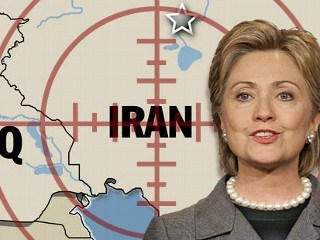 *As New York senator Clinton endorsed the murderous ongoing sanctions against Iraq, imposed by the UN in 1990 and continued until 2003. Initially applied to force Iraqi forces out of Kuwait, the sanctions were sustained at U.S. insistence (and over the protests of other Security Council members) up to and even beyond the U.S. invasion in 2003. Bill Clinton demanded their continuance, insisting that Saddam Hussein’s (non-existent) secret WMD programs justified them. In 1996, three years into the Clinton presidency, Albright was asked whether the death of half a million Iraq children as a result of the sanctions was justified, and famously replied in a television interview, “We think it was worth it.” Surely Hillary agreed with her friend and predecessor as the first woman secretary of state. She also endorsed the 1998 “Operation Desert Fox” (based on lies, most notably the charge that Iraq had expelled UN inspectors) designed to further destroy Iraq’s military infrastructure and make future attacks even easier.
*As New York senator Clinton endorsed the murderous ongoing sanctions against Iraq, imposed by the UN in 1990 and continued until 2003. Initially applied to force Iraqi forces out of Kuwait, the sanctions were sustained at U.S. insistence (and over the protests of other Security Council members) up to and even beyond the U.S. invasion in 2003. Bill Clinton demanded their continuance, insisting that Saddam Hussein’s (non-existent) secret WMD programs justified them. In 1996, three years into the Clinton presidency, Albright was asked whether the death of half a million Iraq children as a result of the sanctions was justified, and famously replied in a television interview, “We think it was worth it.” Surely Hillary agreed with her friend and predecessor as the first woman secretary of state. She also endorsed the 1998 “Operation Desert Fox” (based on lies, most notably the charge that Iraq had expelled UN inspectors) designed to further destroy Iraq’s military infrastructure and make future attacks even easier.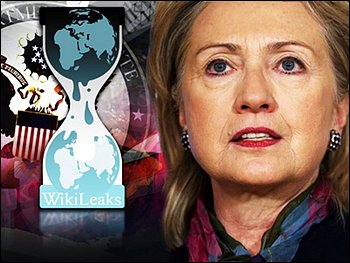 What can those who revere her point to in this record that in any way betters the planet or this country? Clinton’s record of her tenure in the State Department is entitled Hard Choices, but it has never been hard for Hillary to choose brute force in the service of U.S. imperialism and its controlling 1%.
What can those who revere her point to in this record that in any way betters the planet or this country? Clinton’s record of her tenure in the State Department is entitled Hard Choices, but it has never been hard for Hillary to choose brute force in the service of U.S. imperialism and its controlling 1%.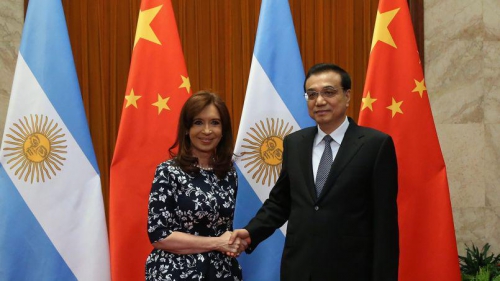
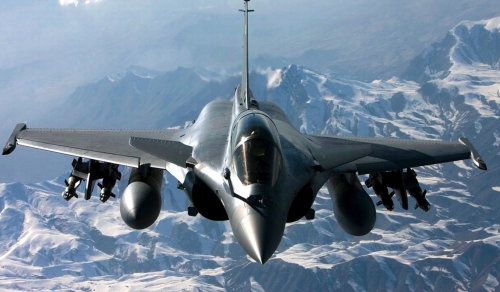
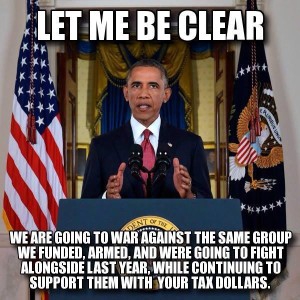 At long last, the Obama administration has submitted a draft resolution to Congress that would authorize the ongoing U.S.-led military intervention against the Islamic State, or ISIS.
At long last, the Obama administration has submitted a draft resolution to Congress that would authorize the ongoing U.S.-led military intervention against the Islamic State, or ISIS. 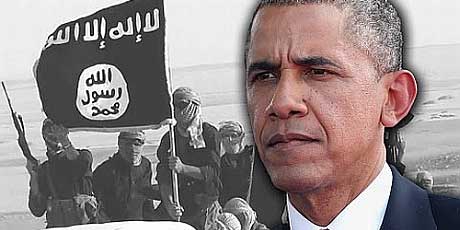 4. It’s a charade. Obama says that the war resolution is necessary to “show the world we are united in our resolve to counter the threat posed by” ISIS. Secretary of State John Kerry added in a statementthat an authorization would send “a clear and powerful signal to the American people, to our allies, and to our enemies.” But as any kid who’s taken middle school civics could tell you, the point of a war resolution is not to “show the world” anything, or “send a signal” to anyone.
4. It’s a charade. Obama says that the war resolution is necessary to “show the world we are united in our resolve to counter the threat posed by” ISIS. Secretary of State John Kerry added in a statementthat an authorization would send “a clear and powerful signal to the American people, to our allies, and to our enemies.” But as any kid who’s taken middle school civics could tell you, the point of a war resolution is not to “show the world” anything, or “send a signal” to anyone. 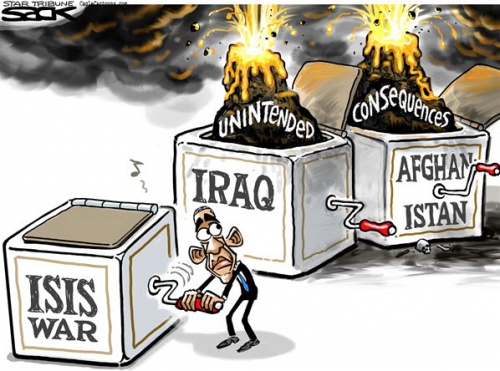
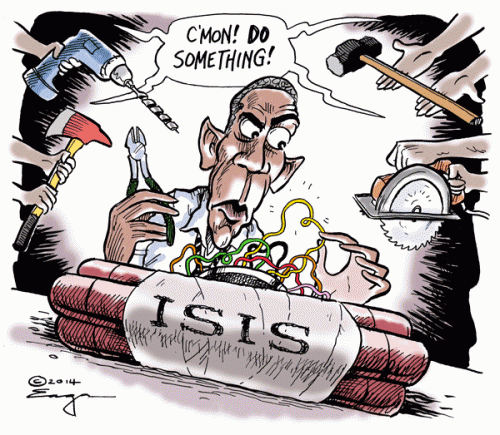
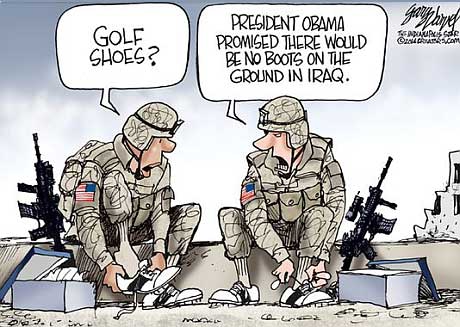
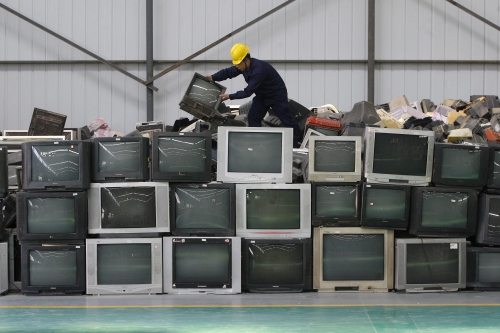
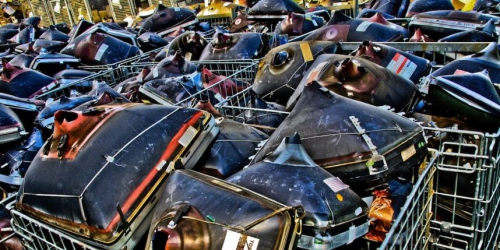

 Un constat: les Algériens ont perdu le sens de l’économie, la disponibilité excessive de tout, stérilise toute recherche tendant à éviter le gaspillage; l’Algérien de 2015 pense que tout lui est dû. Nous avons perdu le sens de l’économie et de la durabilité des choses. Nous avons 35 millions de portables dont la durée de vie est de trois ans en moyenne. Cela veut dire qu’il a un moyen de recycler 3 millions de portables/an.
Un constat: les Algériens ont perdu le sens de l’économie, la disponibilité excessive de tout, stérilise toute recherche tendant à éviter le gaspillage; l’Algérien de 2015 pense que tout lui est dû. Nous avons perdu le sens de l’économie et de la durabilité des choses. Nous avons 35 millions de portables dont la durée de vie est de trois ans en moyenne. Cela veut dire qu’il a un moyen de recycler 3 millions de portables/an.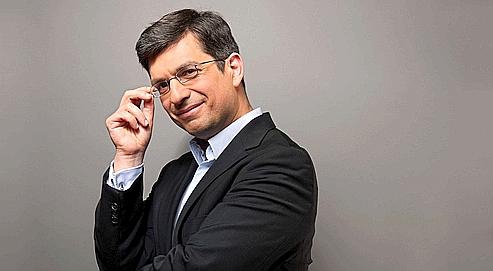
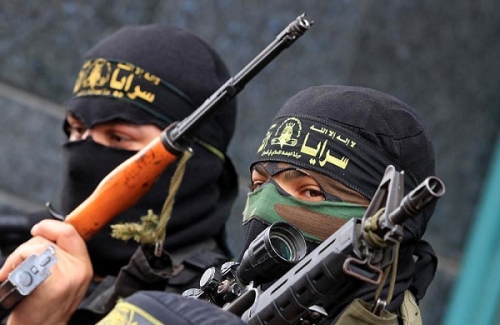
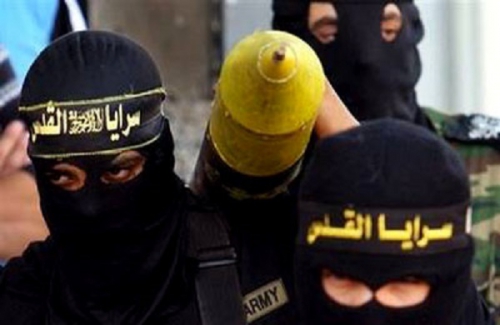
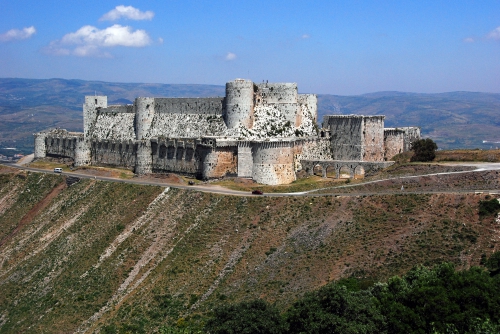
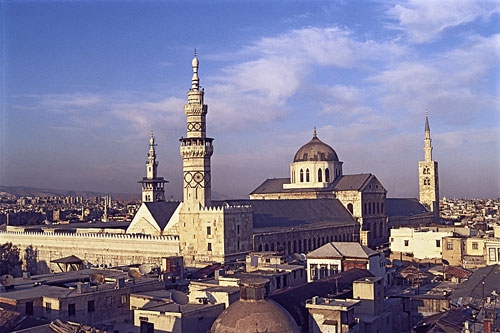

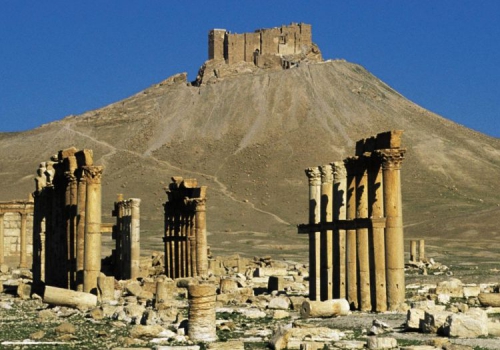

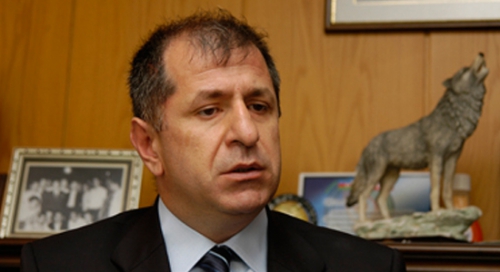
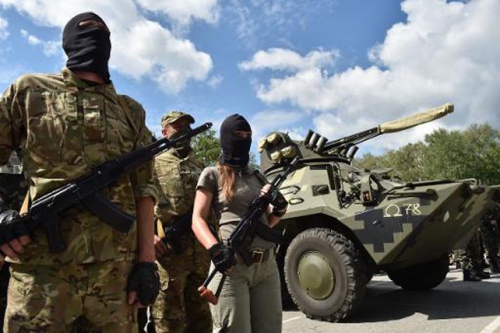
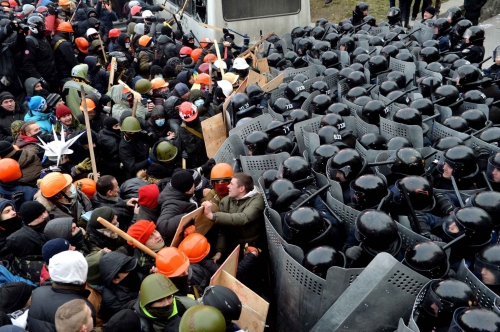
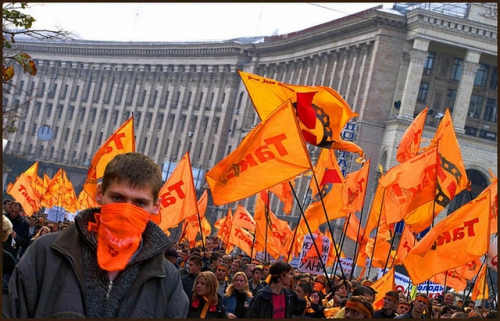
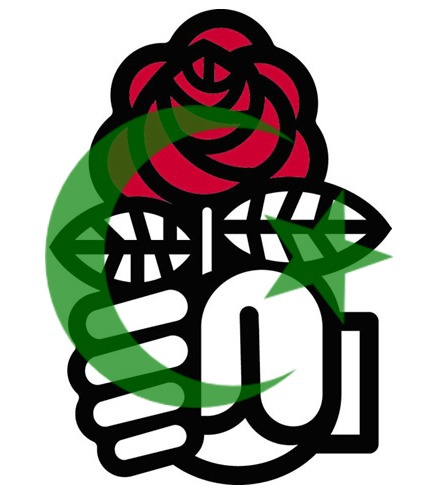 Les activistes islamistes violents, boostés par les guerres américaines en Afghanistan, en Irak et les conséquences du « Printemps arabe » qui ont déstabilisé la Libye, la Syrie, la moitié de l’Afrique marquent des points.
Les activistes islamistes violents, boostés par les guerres américaines en Afghanistan, en Irak et les conséquences du « Printemps arabe » qui ont déstabilisé la Libye, la Syrie, la moitié de l’Afrique marquent des points. 
